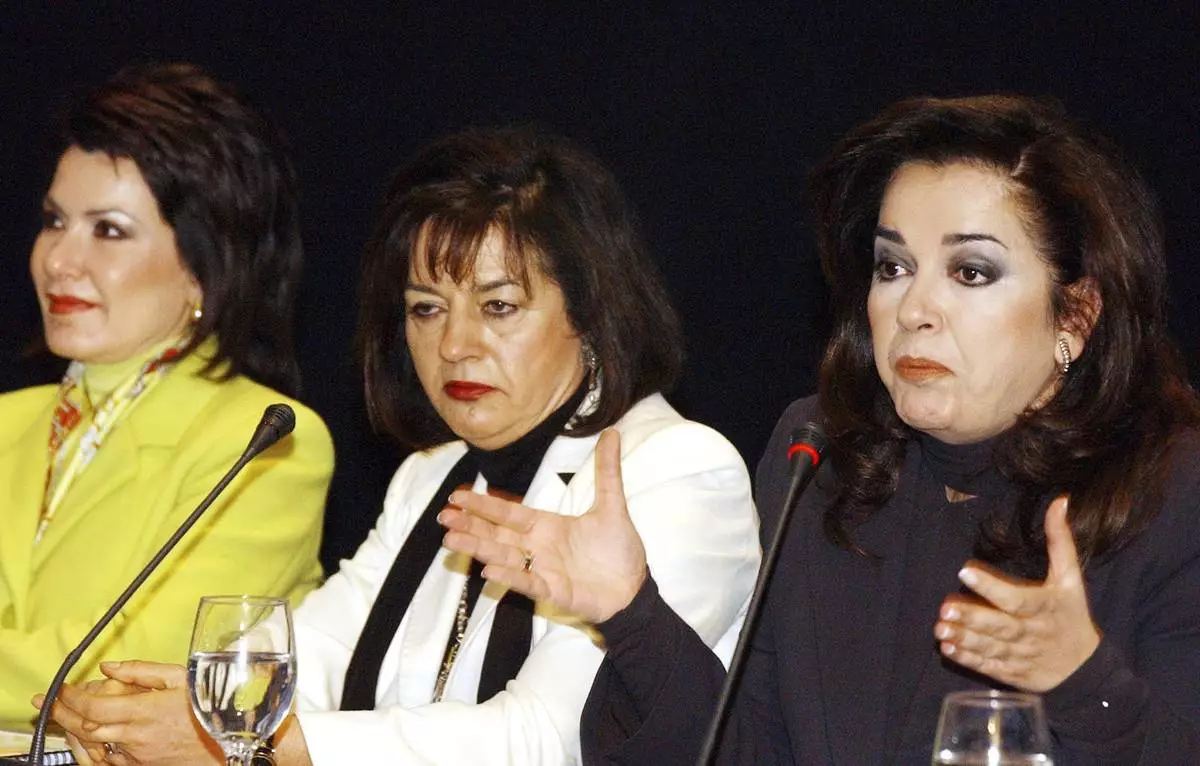ATHENS, Greece (AP) — Vasso Papandreou, a trailblazing Greek politician who served as a government minister, European commissioner and leading advocate for women’s representation in politics, has died at her home in an Athens suburb. She was 79.
No cause of death was given, but she had been in poor health for several years.
Her funeral was held Saturday outside Aegio, near the town of her birth in southern Greece, and was attended by former Socialist prime minister Costas Simitis and other veteran politicians.
Politicians across party lines paid tribute to Papandreou following her death Thursday, recognizing her contributions to Greece and dedication to social justice.
“Even though we found ourselves on opposite sides, I must admit she was a strong personality ... she earned the devotion of her friends and the respect of her opponents,” said the conservative Prime Minister Kyriakos Mitsotakis.
Papandreou was a founding member of the Panhellenic Socialist Movement in 1974. She was unrelated to the party founder, Andreas Papandreou, but they had a brief affair in the mid-1970s, after which she left for the U.K. to complete her graduate studies.
She served in various ministerial positions in the Costas Simitis governments from 1996 to 2004, including minister of economic development, minister of interior, and minister for the environment, physical planning and public works.
Papandreou broke barriers as Greece’s first female European Commissioner from 1989 to 1992, overseeing employment, industrial relations and social affairs in the second commission led by Jacques Delors and was admired for her strong advocacy of democratic rights.
A champion for women’s representation, Papandreou led efforts to increase female participation in Greek politics. She successfully pushed for legislation requiring 33% female representation on candidate lists, starting with municipal elections in 2002 — building a foundation for greater gender balance in Greek politics.
Throughout her career, she advocated for workers’ rights, educational opportunities and support for mothers and individuals with special needs.
Papandreou won election to Parliament in six consecutive elections, from 1993 to 2009. For her first election, in a year when the Panhellenic Socialist Movement returned to power, she had prepared for a candidacy in the central Athens multi-seat constituency, but was shifted to the much larger Athens B constituency, in the capital’s suburbs, which, at that time, had 32 seats. The result was that she received a still-standing record 256,831 preference votes, many from female PASOK supporters who intended their vote as a rebuke to the party leadership.
In late 1994, she and three other lawmakers, including Simitis, formed what was called “the Group of Four” aiming to push the ailing party founder, Andreas Papandreou, into retirement. The group met several times at her home to coordinate their strategy. Andreas Papandreou finally bowed out in 1996 after his health took a significant downturn and was succeeded as prime minister and party leader by Simitis.
Born on Dec. 9, 1944, Papandreou studied economics in Athens before earning a Ph.D. from the University of Reading in the U.K., where she started her career as an academic before shifting to politics as Greece emerged from a seven-year military dictatorship.

FILE - Athens Mayor Dora Bakoyanni, right, speaks during a news conference as Public Works Minister Vasso Papandreou, center, and Gianna Angelopoulos-Daskalaki listen in Athens, Greece, Feb. 18, 2003. (AP Photo/Thanassis Stavrakis, File)










